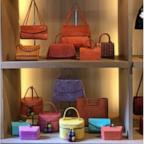Risky court conditions create more frustration from players
— -- PARIS -- Whoever takes the women's and men's singles championships at the waterlogged French Open this year can justifiably say they prevailed over some unprecedented tough conditions in this charming but dated facility.
As rain fell Tuesday for the seventh time in the 9-day-old tournament, a handful of top players bitterly criticized tournament officials' decisions to press on with matches in what they called unsafe conditions, re-opening some long-simmering tensions between the players and the game's independent organizations.
Several men's fourth-round matches were also affected. David Goffin and Ernests Gulbis took matters into their own hands and refused to continue their match, while Dominic Thiem also walked off during his contest with Marcel Granollers. Soon after, Agnieszka Radwanska and Simona Halep took aim at the French Tennis Federation.
"I'm just pissed," said the second-seeded Radwanska, who unsuccessfully tried to get her match stopped. She then sought medical treatment on her surgically repaired right wrist after she lost nine straight games on the way to being bounced by unseeded Bulgarian Tsvetana Pironkova 2-6, 6-3, 6-2.
"I just cannot play in that conditions -- I mean, I'm not healthy enough," Radwanska added. "I'm just so surprised and angry that we have to play in the rain. ... It's a Grand Slam. How can you allow players to play in the rain?"
Pironkova will now play No. 21 seed Samantha Stosur, a finalist here in 2010 and winner of the 2011 US Open, in the quarterfinals. Stosur roared back from a 5-3 opening-set deficit when her match resumed to overpower Halep 7-6 (0), 6-3.
"I have no words," Halep said. "It was impossible to play. No one cares about the players in my opinion. I don't care that I lost the match today, but I was close to get injured with my back, so that's -- that's a big problem. ... The court was not good. The balls were wet, completely wet during the match. ... I didn't feel safe on the court."
When told about Granollers' and Goffin's decision to refuse to play, Halep said, "Good. Well done to them," and flashed a thumbs up sign.
Halep's contention that the powers-that-be in tennis don't care about the players was also echoed by Radwanska.
It is not a new charge.
This has been a particularly fractious year in the sport, starting with the Australian Open in January, where match-fixing charges resurfaced and the ITF was again accused of lacking sufficient transparency in how it polices the integrity of the game, the umpires and players, and its anti-doping program.
At the time, Novak Djokovic admitted that a member of his team had been approached about throwing a match in exchange for a six-figure payoff. And Roger Federer urged officials to name names -- if they had them -- if only to clear innocent players from suspicion.
In February, Maria Sharapova announced she had tested positive for meldonium, a drug that was just moved onto tennis' banned list at the start of this year. About the same time Sharapova admitted her mistake, a former French Tennis Federation official suggested nine-time French Open champion Rafael Nadal had served a "silent ban" for a positive drug test that was never announced. Nadal hotly disputed the charge and is now suing the same official in French court.
Nadal's case -- like Marin Cilic's belated admission in 2013 that he made up an injury to hide the fact he was serving a provisional ban for a positive drug test -- raised the scrutiny on Sharapova's punishment, which could come down any day now. Will the highest-earning female athlete in the world be suspended? Or won't she?
Even before controversy broke loose again Tuesday at the French Open, retired American great Chris Evert put some blame at the feet of today's competitors, saying top players of her generation made sure they made noise and got their way when something bothered them.
But Halep admitted Tuesday that she's not that kind of person. Radwanska did protest but sounded like she'd given up hope of changing anything, explaining, "I don't think they really care what we think. I think they care about other things, I guess."
Such as money?
Like many other tournaments, the French Tennis Federation is forced to issue refunds if play is rained out completely for the day. But by allowing spectators to arrive and then stretching the day on and on without calling play, no matter how bad the prognosis for clear skies is, it keeps folks on the grounds to keep on shopping, eating, drinking and spending money.
Compared to Radwanska's, Halep's, Granollers' and Thiem's actions Tuesday, Djokovic's gentle chiding of French Federation officials Saturday about his hopes that they will accelerate plans to build a roof over at least one of the main show courts here by 2020 or at least install lights, looked tame. The main show courts at the Australian Open and Wimbledon have both. And the US Open will have a roof in the next couple of seasons.
"It's not good for anybody, you know, waiting the whole day for players, for fans, for tournament organizers," Djokovic said after his win against Aljaz Bedene on Saturday.
During the second rain delay Tuesday, Djokovic -- who didn't speak to the media because he didn't complete his match -- walked over to the grandstand and borrowed a umbrella from an elderly woman sitting in the first few rows. Then he walked to the baseline with it while holding his racket in his other hand and smiled.
As usual, his tone was pitch perfect.
What began as a hopeful catch-up day at the French Open turned into a full-blown farce by day's end.




